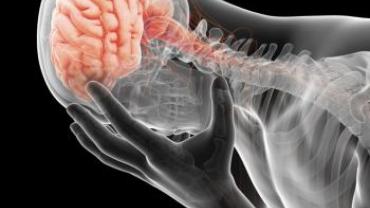
Depression is notoriously difficult to treat. The underlying causes are often multifactorial and elusive to identify. Pharmaceutical drugs leave a lot to be desired. Not only are they often ineffectual but many of them come with undesirable side-effects which can be unpleasant for anyone to deal with but may be even worse for someone already contending with depression. Moreover many healthcare practitioners are quick to reach for the prescription pad without digging a little deeper to try and identify some of those elusive root causes.
Dietary changes—specifically nutrition and supplement interventions—may be helpful for individuals who respond poorly to conventional treatments. Doctors can help patients complaining of depression by doing a thorough assessment of pertinent lab work. For starters suboptimal thyroid function is a common cause of depression but this will be missed if the first course of action is a prescription for an SSRI rather than ordering the proper blood tests and beginning a treatment strategy to improve thyroid hormone levels.
Another underlying factor that may contribute to depression is vitamin B12 insufficiency. Among individuals with major depressive disorder who had “low normal” B12 levels and had responded inadequately to SSRI treatment adding B12 injections in combination with the drugs resulted in significant improvement of depression. At three months of follow-up 100% of subjects in a study treatment arm that employed an SSRI plus B12 injection experienced at least a 20% improvement in symptoms compared to 69% of subjects who were given the SSRI alone.
Some studies show that higher B12 levels are associated with better outcomes regarding recovery from depression but findings are mixed. Single nucleotide polymorphisms that affect genes responsible for one-carbon metabolism (which includes methylation and the homocysteine cycle) may mean that some individuals benefit from high doses of supplemental B12 and folate while others would experience no improvement. Findings are mixed but considering the convenience and low cost of a trial of nutritional supplementation it’s worth testing patients for these polymorphisms and seeing how they respond to B12 and/or folate. It would be a godsend to those individuals whose depression is primarily caused by something as easily correctable as a vitamin insufficiency. Some researchers recommending supplementing with both folate and B12. Compared to subjects with depression who responded to fluoxetine treatment subjects who did not have a significant response were more likely to have low folate status. Increasing folate levels in these patients may help facilitate a more effective response to drugs that seem to result in better outcomes among those who are folate replete.
Other researchers propose that the nutritional state identified during recurrent depressive episodes may be the result rather than the cause of the depression. Compared to patients not experiencing depression when tested patients in a depressive period had higher homocysteine and lower B6 levels. Other than that however no associations were found between depression and the one-carbon cycle. The study authors concluded that one-carbon-cycle “alterations in major depressive disorder are state-associated possibly resulting from high levels of acute (psychological) stress.”
Another important angle to investigate when helping patients with depression is fatty acid status. Research indicates that some cases of depression may be linked to chronic inflammation. If so then addressing a skewed omega-6/omega-3 ratio could correct an underlying physical problem that is ultimately manifesting as a psychological condition. A sufficient omega-3 intake may help facilitate the synthesis of healthy myelin and neuronal phospholipids and therefore improved neuronal communication.
Randomized controlled trials and meta-analyses alike support a therapeutic potential for omega-3 fats in depression. Specifically EPA seems to have a more powerful effect than DHA which is interesting because DHA may be more effective than EPA for other unrelated concerns such as eye health. Just as with B12 and folate considering the relative ease of correcting an n-3/n-6 imbalance that’s a simple intervention that could potentially be a boon for depressed patients.
Some individuals may respond to nutritional interventions alone. Others may find that getting replete in particular nutrients deficiencies of which are known to be associated with depression may help improve the efficacy of antidepressant drugs that had otherwise been unhelpful. Either way assessing a patient’s habitual diet and nutrient status should be a fundamental part of a multi-pronged strategy for working with depression.